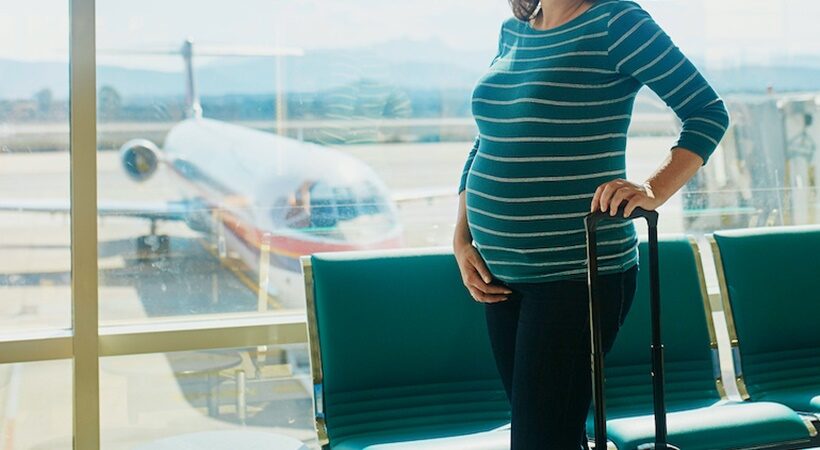There is no universal rule regarding how to determine the citizenship of a newborn on an international flight. Every country has different guidelines, policies and regulations concerning the citizenship of children born on planes. Also, all the airlines all across the world, have different rules and regulations on pregnant women boarding a plane. Commercial airlines do not allow pregnant women to fly after 36 weeks of pregnancy. Generally, after 28 weeks, a medical certificate is compulsory for a flight journey by pregnant women.
For example, if a pregnant lady goes into labor in an aircraft flying from India to the USA and when the flight passes over the Canadian border she delivers a child. The place of birth of the child will be Canada and the child can acquire the citizenship of his parent’s country as well.
The national address of the airline, the nation where the child is born and the nationality of the parents matter while deciding the nationality of the child. Some nations grant citizenship to the sky babies and some don’t. In a few cases, a baby born in the air enjoys the benefit of dual citizenship.
If the baby is born over United States airspace, the jus soli rule means the child would be granted US citizenship. Depending on the circumstances, the child may also be a candidate for dual citizenship if its parents are from a country that grants citizenship based on blood, though it would depend on the countries involved.
The nationality of a child born on a plane can also be defined and established based on the airlines the individual is flying in. If the plane is registered in Norway even when you are flying over the pacific or between any two countries’ borders the individual will still be in Norway and has to abide by the Norwegian nationality. The babies born on planes can be citizens of the country where the plane is registered and can acquire the citizenship of their parent’s home country later on.
According to the regulations in India, if the child is born on a plane above the borders of India, then Indian Citizenship can be sought for him, but he cannot acquire any other citizenship (of his parents) as India does not allow dual citizenship.
Despite all the complexities in international laws, mid-flight births are exceedingly rare, in fact, most airlines don’t even keep track of the number of babies born in the air. An expecting mother likely wouldn’t even be able to get onto a flight in the first place, since many airlines have rules that prohibit women from flying after they have reached a certain stage of pregnancy. The staff on the plane are trained for medical emergencies but not childbirth. The nationality of the child born on a plane entirely depends on the laws of the land the baby’s birth takes place and the laws of the nation the parent of the child belongs to.



















